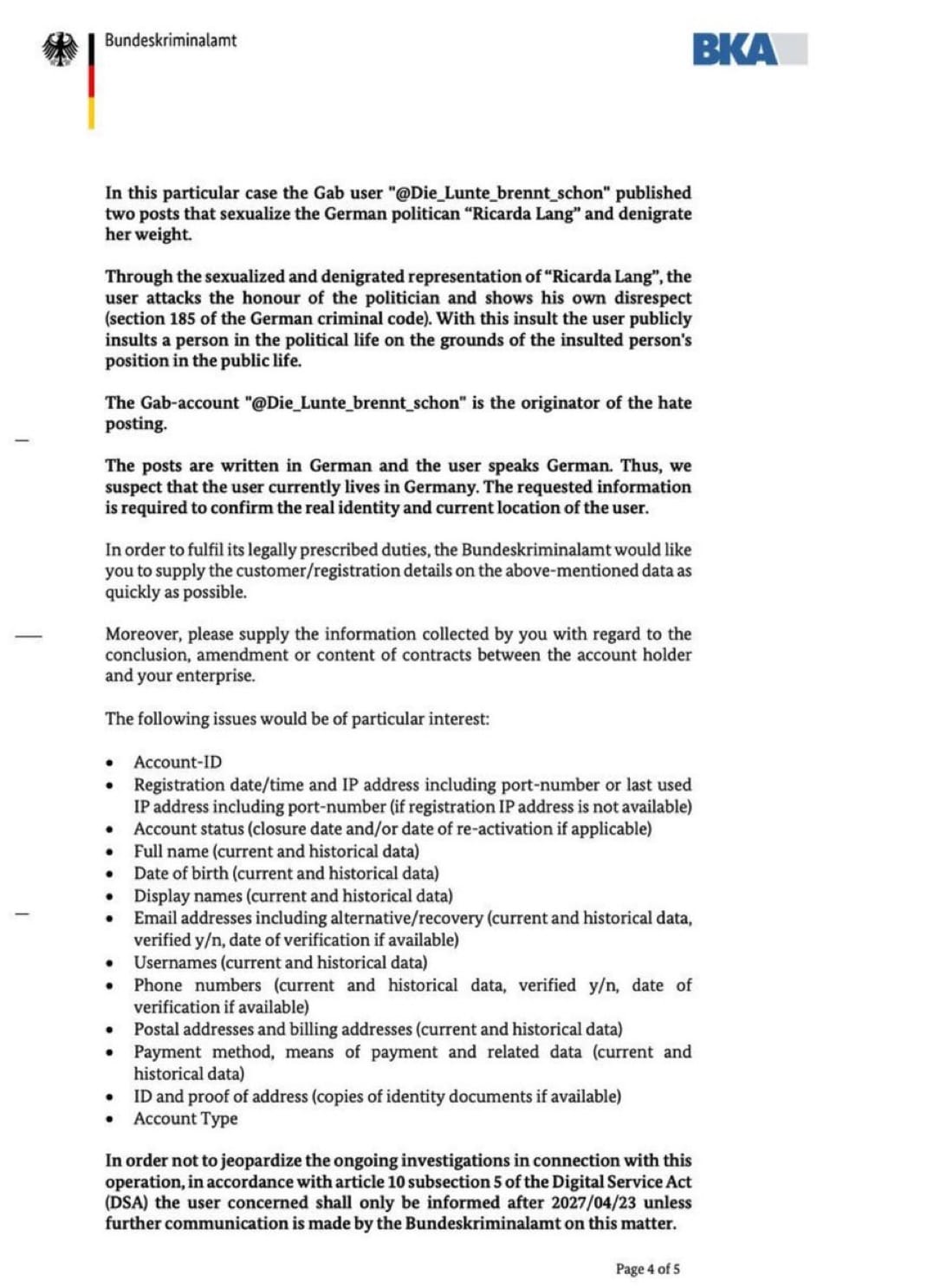German Police Demand Data from Gab Over User's Comment on MP's Weight
In a move that has sparked debate over free speech versus hate speech, the German Federal Criminal Police Office (BKA) has requested user data from the social media platform Gab following a user's comment about the weight of a female Member of Parliament, Ricarda Lang. The incident has
In a move that has sparked debate over free speech versus hate speech, the German Federal Criminal Police Office (BKA) has requested user data from the social media platform Gab following a user's comment about the weight of a female Member of Parliament, Ricarda Lang. The incident has highlighted the ongoing tension between online freedom of expression and legal boundaries concerning insult and defamation in Germany.
The user in question reportedly made comments that the German authorities deemed offensive, describing MP Ricarda Lang, a prominent figure from the Green Party, in terms related to her weight. This has led to the BKA seeking to identify the individual behind the Gab account, citing potential violations of Germany's criminal code, specifically section 185 which deals with insult.
Gab, known for its stance on free speech, has publicly stated its refusal to comply with the German police's request. Andrew Torba, CEO of Gab, emphasized the platform's commitment to user privacy and free speech, arguing that the comments, while potentially offensive, are protected under U.S. law where Gab operates. This stance has drawn both support from free speech advocates and criticism from those who believe such comments cross into hate speech territory.

The incident comes at a time when Germany, like many countries, is grappling with how to handle online speech that might be offensive or insulting but does not directly incite violence or hate against a group. Critics of the police action argue that this case might set a precedent for overreach into personal expression, especially when considering the global nature of the internet and differing legal standards on speech.
On social media platforms like X (formerly Twitter), reactions have been mixed. Some users have criticized the German police's involvement as an overstep, pointing out that commenting on someone's physical appearance, while rude, should not be a matter for criminal investigation. Others, however, support the investigation, arguing that public figures deserve protection from targeted harassment, which they believe such comments constitute.
This case also underscores the challenges social media platforms face when dealing with international law. While Gab's refusal to comply might be legally defensible in the U.S., it places the platform in direct conflict with German law enforcement, potentially affecting its operations or user base in Germany.
As the debate continues, it raises broader questions about the limits of free speech in the digital age, the role of social media platforms as arbiters of content, and the cultural differences in what constitutes acceptable discourse. This incident might not only affect how Gab and similar platforms operate but could also influence future legislation on hate speech and online harassment across borders.




